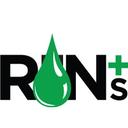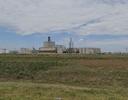Total to convert oil refinery to renewable diesel production

April 16, 2015
BY Ron Kotrba
In an effort to curb financial losses, French oil company Total S.A. announced plans April 16 to invest €200 million ($216.1 million) to convert its La Mède oil refinery in southern France to a biorefinery that will hydrotreat used cooking oils and other feedstock into renewable diesel.
The company stated that Europe’s demand for petroleum products has declined by 15 percent since 2008. “This underlying trend stems from pursuit of energy efficiency and improved vehicle fuel economy as part of the European Union’s commitment to reducing its carbon footprint,” Total stated. “The European market is steadily contracting, a situation aggravated by the shale oil and gas revolution in the United States, which gives the U.S. refining industry an advantage, and competition from refineries in Asia and the Middle East. These two trends shut European refineries out of some of their domestic and export markets and have exacerbated excess refining capacity in Europe.”
Advertisement
Advertisement
Total also cited a draft bill calling to double the share of biofuels in France, from 7.7 percent today to 15 percent by 2030, as another motivator in upgrading the La Mède site for biorefining.
With plans to halt crude oil processing by the end of next year, the revamped La Mède facility will produce 500,000 tons of renewable diesel using Axens’ trademarked Vegan process.
While some of the site’s units are transformed and crude oil refining is halted, Total stated it will maintain profitable refining activities and develop new ones, including continuing to operate certain existing refining units, such as the naphtha reformer to produce hydrogen needed for biorefining, and building an 8 megawatt solar farm to provide 50 percent of the La Mède site’s power needs.
Advertisement
Advertisement
Of the 430 jobs currently at the La Mède site, 250 will be maintained, according to Total.
The company also announced an investment of €400 million to upgrade its Donges refinery in western France, adding a desulfurization unit and steam methane reformer to produce hydrogen for the desulfurization process.
Related Stories
Biodiesel capacity in the U.S. and Canada dipped slightly stable in 2024, with several renewable diesel producers reporting headwinds and lower margins alongside a drove of SAF projects in various stages of development.
The IEA’s Task 39 group has new research regarding the development and status of the sustainable aviation fuel industry.
The U.S. EPA on Nov. 16 released updated RIN data, reporting that nearly 2.11 billion RINs were generated under the RFS in October, up from 1.81 billion generated during the same month of last year.
Conestoga to host SAFFiRE cellulosic ethanol pilot plant
Conestoga Energy and SAFFiRE Renewables LLC announced on Nov. 16 their agreement for Conestoga to host SAFFiRE’s cellulosic ethanol pilot plant at Conestoga’s Arkalon Energy ethanol facility in Liberal, Kansas.
Officials at Calumet Specialty Products Partners L.P. discussed the company’s proposed plans to boost sustainable aviation fuel (SAF) production at its Montana Renewables biorefinery during third quarter earnings call, held Nov. 9.
Upcoming Events










